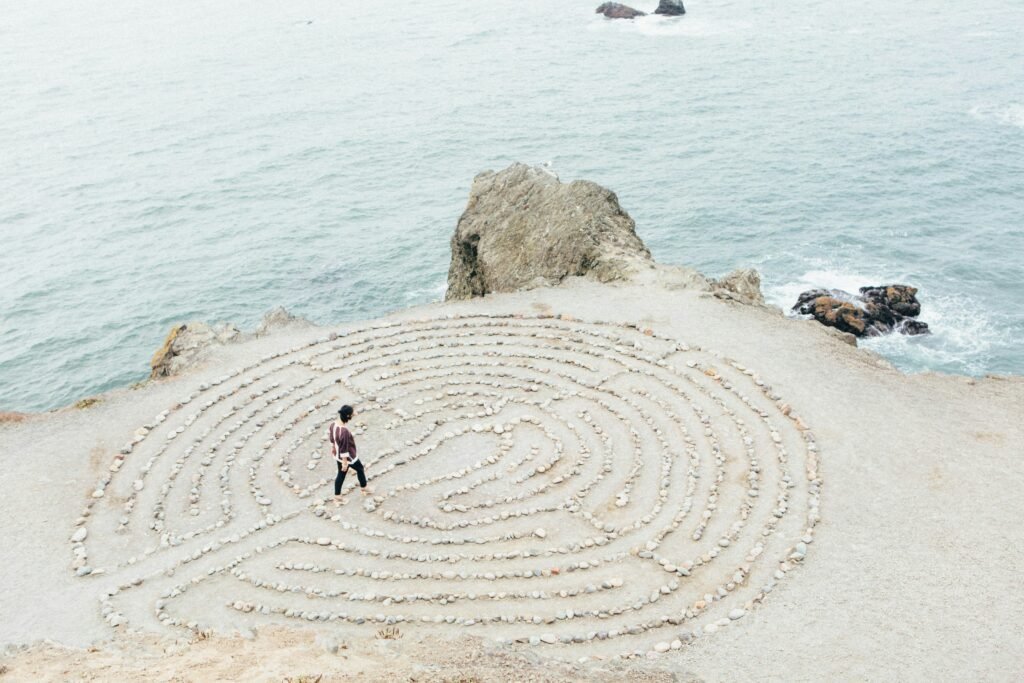The Narrator in Your Own Meltdown
Do you ever catch yourself mid-meltdown, calmly narrating your own emotional chaos like a nature documentary?
“Here we observe the adult survivor in his natural habitat, spiraling over the way a text message is worded…”
That’s the kind of self-awareness I’m talking about, the kind that sounds evolved but actually feels like mental surveillance. I’ve done enough therapy, read enough books, and dissected enough of my childhood to recognize every emotional pattern as it’s happening. The problem is, knowing why I’m reacting doesn’t always stop the reaction.
The Curse of Over-Analyzing Everything
Sometimes I wish I could go back to blissful ignorance, to just feel things without the commentary track. But once you start healing, it’s like unlocking a developer mode in your brain. You see every glitch. Every trigger. Every childhood wound that shaped your adult responses. And before you know it, you’re overanalyzing a trip to the grocery store because the cashier’s tone reminded you of your mother’s disapproval in 1985.
Self-awareness is powerful. It’s the flashlight that helps us navigate the dark corners of trauma. But it’s also exhausting. There’s a point where introspection turns into self-interrogation. Where “Why do I feel this way?” becomes “What’s wrong with me for still feeling this way?”
Healing Is a Double-Edged Sword
CPTSD makes this even trickier. Hypervigilance doesn’t just show up in relationships or danger; it sneaks into healing too. Now, instead of scanning the room for threats, I’m scanning my thoughts for signs of regression. It’s progress, but it’s also pressure. I end up performing emotional wellness like it’s a full-time job.
And truthfully, sometimes I miss not knowing. I miss when I didn’t have to label everything as “avoidant attachment” or “emotional flashback.” Awareness can become another way of controlling what’s uncontrollable, a way to stay one step ahead of pain instead of actually feeling it.
Learning to Pause
But here’s what I’ve learned (on a good day): healing isn’t about catching every behavior in real time. It’s about learning to trust yourself enough to let go of the constant monitoring. Awareness was meant to be a bridge to self-compassion, not a tool for self-critique.
So lately, when I notice myself spiraling into analysis, I try to pause and ask:
“What would happen if I didn’t fix this right now?”
Usually, the world doesn’t end. My nervous system just wants a sandwich, a nap, or a walk outside.
Being Human Again
Maybe healing isn’t about being perfectly self-aware. Maybe it’s about being human again. messy, emotional, occasionally irrational, and still worthy of love.
And if that means I occasionally narrate my own trauma response in David Attenborough’s voice? Well, at least I’m learning to laugh about it.
For Anyone Reading This
If this is hitting too close to home, trust me, you’re not alone. Being hyper-aware, overthinking, or psychoanalyzing yourself 24/7 is exhausting. And it’s okay to just… stop for a minute. Healing isn’t about having all the answers or being perfect. Sometimes it’s about taking a breath, hitting pause, and letting yourself be human.
Photo by Ashley Batz on Unsplash


This has been fantastic to read. It’s where i am right now and it’s made me feel so much better to hear that this is all normal. Thank you🙂
I’m really glad this resonated with you. What you’re feeling is completely normal, and you’re definitely not alone in experiencing it. It can be so relieving to hear someone else say it out loud and know that what’s happening inside your head and heart makes sense. At least that’s what it’s been for me, knowing I’m not alone and that these feelings are normal has made a huge difference.